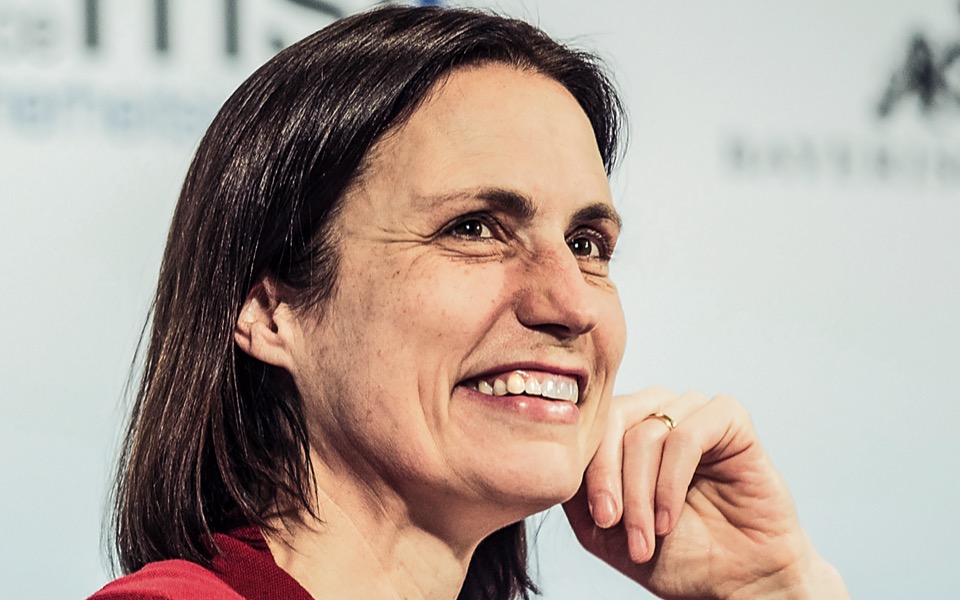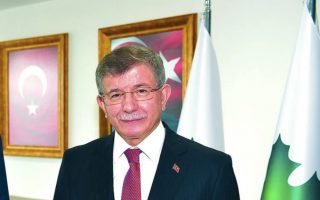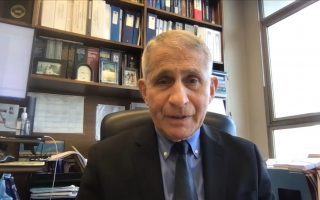The strategic upgrade of Greek-US relations will continue under Biden
Brookings senior fellow Fiona Hill talks to Kathimerini about Greece, Turkey, Russia and the decline of American politics

Fiona Hill is not your typical member of the senior national security establishment in Washington. A British-born-and-raised American (she is the daughter of a coal miner and a midwife from County Durham, as her accent attests) she stands out among the gray middle-aged WASPS who dominate the space – and stood out even more with her powerful testimony in 2019 before the House of Representatives during the first impeachment of Donald Trump. Kathimerini spoke with Hill via Zoom about Greece, Turkey, Russia (a country she knows as few others) and the decline of American politics.
“The Eastern Mediterranean has become more strategic, with the discovery of large gas reserves, the refugee crisis and Russia’s intervention in Syria,” said Hill, who between 2017 and 2019 was director for European and Russian affairs on the US National Security Council and is currently a senior fellow at the Brookings Institution.
In Trump’s days, as part of the review of US policy toward the region, “an effort was made to patch up relations with Turkey, which had really soured since 2003 and the US intervention in Iraq.” The Turkish purchase of S-400 missiles from Russia, however, derailed this effort and, as part of Washington’s new approach, “an attempt was made to strategically upgrade relations with Greece.”
This upgrade, Hill explains, is expected to continue during Joe Biden’s presidency: “The issue is not ideological, there is no difference in the approach by Democrats and Republicans. Ways to further deepen the relationship will continue to be explored. We had a very strong ambassador to Greece, Geoffrey Pyatt, who may now be taking on a more important post at the State Department. With the developments that took place during his tenure in Athens, we can expect that [bilateral relations] will continue in the same direction.”
Hill highlights Pyatt’s crucial role in resolving the name issue with North Macedonia. “This was part of the broader effort to move the US-Greece relationship forward, not to remain mired in issues that of course they were very important to the Greek side, but from Washington’s point of view were perceived more as obstacles to Greece’s wider activity at regional level.” Regarding Greek-Turkish relations, she notes that previous Greek prime ministers had managed to build a fairly close relationship with Recep Tayyip Erdogan. “The shift that has taken place in recent years is not due to any structural change in bilateral relations, but more to developments within Turkey,” she observes.
According to the former White House official, President Trump did not have a clear view of either Alexis Tsipras or Kyriakos Mitsotakis. “It is a matter of personality; he warmly embraced the relationship with Greece, because the Greek-American community has many important representatives in American politics. It was, I must say, a very superficial approach,” she notes, meaning that the attitude of the 45th president was guided by political calculations and not some coherent strategic vision.
She recalls a “very awkward moment” at the joint White House press conference when Alexis Tsipras was asked about some negative comments he had made about Trump when he was running for president, but said it “had no effect” on relations between the two sides.
Hill was a fellow student of Mitsotakis at Harvard in the early 1990s. “We had dinner together in the graduate student dorms,” she recalls. “I have a very high opinion of him. I had a very high opinion of him then, too; I just never expected that we would meet again in such an official context.” But she also met Tsipras – “a very different person” from the current prime minister – when he visited Brookings before winning the January 2015 election “and we were very impressed by him.” In her view, in fact, as prime minister, “he handled the relations with the United States very carefully and very cleverly.”
Imperial nostalgia
Hill believes that the relationship between Russia and Turkey in recent years – which she avoids calling “rapprochement” – is falling into the pattern of the historical relationship between the Ottoman Empire and the Russian Empire. “This entails a lot of tensions and risks […] There is a historical rivalry between the two countries – in the Black Sea, in the Eastern Mediterranean…They have been pulled together because of their mutual interest in Syria, but even there their perspective is very different – as it is in Libya, where Russia, alarmingly, has sent forces to expand its influence in the Mediterranean. Even in Nagorno-Karabakh, where it is clear that Russia allowed Azerbaijan to resolve the conflict by military means, Turkey’s intervention has allowed Baku to go far beyond what the Russian side had anticipated.”
Irredentism and nostalgia for the imperial past – evident in Turkey but also other members, such as Hungary, is a significant challenge for NATO, notes the British-American expert. “Turkey is not behaving as we would expect from a NATO ally. The purchase of Russian S-400 missiles was a problem, and many countries expressed concern about it. There was a strong expectation that Turkey would not test the missiles, but Erdogan did, going against behind-the-scenes deals reached among others with the US. The Turks insist that NATO membership is of great value to them, that it is a strategic choice; therefore, the Alliance must find a way to exert influence and enforce certain rules in a stricter way.”
Active measures
The discussion turns to the most tumultuous aspect of the stormy Trump presidency – relations with Russia and the response to the Russian intervention in the 2016 US presidential elections.
In Hill’s view, the Russian intervention undermined even the more realistic objectives of the Trump administration for the management of the relationship. “Many said that Trump would not have won without the Russians, and he could not manage that psychologically – it was too much for him. Therefore, he pushed back at the idea that the Russians had intervened wholesale – which of course they had.” Thus, explains Hill, who in 2013 co-authored with Clifford Gaddy one of the most influential books on President Vladimir Putin (“Mr Putin: Operative in the Kremlin”), the case developed into a “domestic political drama.”
Her own assessment is that the Russians wanted to weaken Hillary Clinton as much as possible – “Putin had taken personally some things she had said as secretary of state and thought she would take a hard line on Russia as president” – but they did not anticipate that Trump would be elected. Their intervention, in the end, was successful on a deeper level: “They wanted to question the legitimacy of the election, because they resent deeply the international pronouncements of the US on free and fair elections and their criticism of the conduct of elections in Russia and elsewhere.”
The polarization that already existed in US politics in 2016 facilitated their intervention, she explains – but they managed to take it to new heights. “They achieved a massive victory without investing much – with an old-fashioned influence operation, such as the interventions with which they tried to derail the resolution of the name issue with North Macedonia. In Greece you were not fooled – and we should have shown the same degree of vigilance. It was a victory we gave them, with the excessive reaction of the losing side in the elections and the extreme response of the Republicans to it.”
President Biden “is now trying to reintroduce a bipartisan approach to foreign policy,” she notes, but “given how politicized the Russian issue became, it will be very difficult.”
The ‘minefield’ of US politics
The experienced former official insists that she does not regret serving in Trump’s White House, because she considered it crucial to contribute to the appropriate response to Moscow after the Russian intervention in the presidential election. “What I regret is how naive I was about the domestic American political scene and the key players. I knew more about Russian than I did about American politics.”
“Maybe I should have spent more time watching Fox News, but when I got home I just wanted to sleep,” she recalls. “My ignorance led me to get involved in some situations that led to the first impeachment proceedings. It was as if I had entered a minefield without having read the warning signs.”





